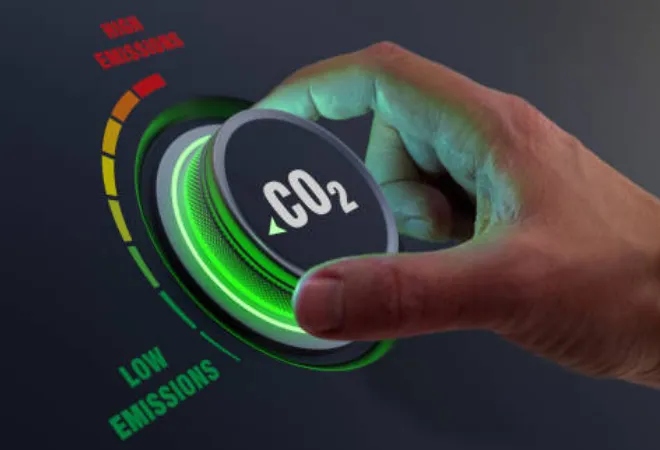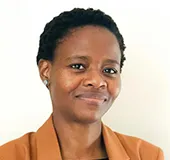-
CENTRES
Progammes & Centres
Location
To achieve the net-zero targets, both Africa and Asia would need to adopt adequate measures to circumvent the capacity conundrum
 This article is part of the series Colaba Edit 2021.
This article is part of the series Colaba Edit 2021.
The response to the climate crisis has lagged considerably behind the awareness about the issue at hand. The first Intergovernmental Panel on Climate Change report came out in 1990, yet it is only in the recent 26th meeting of the Conference of Parties (COP) to the UNFCCC, that “fossil fuel” has been mentioned in the COP decisions. In the meeting, it was also recognised that the Nationally Determined Contributions (NDCs)—national action plans for addressing climate change—remain inadequate and need to be revisited next year. These NDCs provide a template for countries to provide an indication of their priorities in the next few years for addressing climate change. A big debate has been to link these short-term plans for a long-term vision—net-zero emissions in 2050 or beyond. South Africa, in its Low Emissions Development Strategy, has committed to net-zero target by 2050, whereas India has signalled its willingness to reach net-zero target by 2070. These are ambitious targets for these countries to decarbonise their societies, given their dependence on coal-powered energy and their vulnerability to climate change.
Capacity-building is as an essential requirement for meeting the net-zero targets that South Africa and India have set. In particular, the capacity to manage the scale and uncertainty involved in the coming years, the complex and cross-cutting nature of climate change, the urgency required as well as the challenging dynamics that exist between different actors is an important prerequisite for meeting the ambitious targets that have been set. This capacity conundrum comes against the backdrop of these two countries still needing to account for the urgent need to develop and grow their economies.
The capacity to manage the scale and uncertainty involved in the coming years, the complex and cross-cutting nature of climate change, the urgency required as well as the challenging dynamics that exist between different actors is an important prerequisite for meeting the ambitious targets that have been set.
For example, South Africa has an unemployment rate of 34 percent. This figure indicates that any transition from the current state of affairs will need to urgently address unemployment, poverty, and economic hurdles that currently face the country. In addition, owing to the complexity of the country’s landscape both politically and institutionally—extreme inequality, high emissions energy sector, ongoing blackouts, etc.—and because of the disparities of capacity at all levels of government, for the country to shift the narrative to a net-zero economy and then move from talking about net-zero targets to net-zero action by pivoting to implementation is not going to be easy and would need to be contextualised to the local context.
Unlike other continents that are far more advanced with capacity and financial means to be able to address climate impacts, Africa and Asia are faced with significant capacity gaps, which must be tackled to meet net-zero targets. These capacity gaps include:
However, these challenges also present opportunities for collaboration across a range of stakeholders such as civil society, investors, business, and citizens. In South Africa, for example, a number of actions are being undertaken by different stakeholders to reach the net-zero targets. These actions, while small and sometimes in isolation, are crucial for building momentum. These are summarised below:
At the national level, the Presidency has created the Presidential Climate Change Co-Ordinating Commission—this is a 24-member body with an allocated annual budget of 10 million Rand.
As India starts its journey to achieve net-zero emission by 2070, the examples above from South Africa offer lessons for India to address some of the capacity conundrum they will face on the path to net zero emissions by 2070. These include united vision and leadership at the national level, development of appropriate legislative and regulatory measures, financial resources and dedicated expert support to build the knowledge tools.
The views expressed above belong to the author(s). ORF research and analyses now available on Telegram! Click here to access our curated content — blogs, longforms and interviews.

Hlengiwe Radebe is a Civil Society Organisation Engagement Officer at WWF South Africa. She has worked extensively in South Africa and other African countries on ...
Read More +
Prabhat Upadhyaya is aSenior Policy Analyst Climate and Plastics at WWF-South Africa. Heholds a PhD in Environmental Science from Linkping University Sweden and is an ...
Read More +